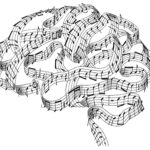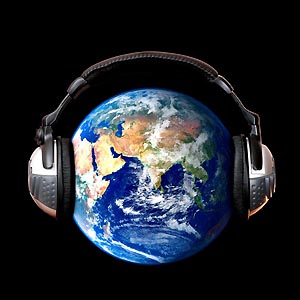 Learning how to play music, and making music, have benefits that are well recognized by science and society. We know how important music is to us all, but it’s nice to see this sense backed up by research. Science has shown that learning to play music improves brain functions, and creates additional neural pathways that may prevent or slow down the effects of conditions such as dementia, Alzheimers, — or even “senior moments!” For more details, take a look at our article called “Shoring Up Your Brain with Music” — just select “Feb 2016” from the archives at the bottom of the column at the left of this page.
Learning how to play music, and making music, have benefits that are well recognized by science and society. We know how important music is to us all, but it’s nice to see this sense backed up by research. Science has shown that learning to play music improves brain functions, and creates additional neural pathways that may prevent or slow down the effects of conditions such as dementia, Alzheimers, — or even “senior moments!” For more details, take a look at our article called “Shoring Up Your Brain with Music” — just select “Feb 2016” from the archives at the bottom of the column at the left of this page.
Learning music from a teacher or at a music camp can yield tremendous benefits mentally, physically and socially. Learning online, as with www.fiddle-online.com, when you don’t have a teacher who can help you with the information or style of music or teaching you are looking for, can yield the same benefits as live lessons because it requires mindfulness and gives you an opportunity to work at your own pace. On fiddle-online.com, the live workshops, as well as subscription to tune or video groups with reasonable but limited timelines, give you a push to stay engaged and make progress. I have two mottos that are relevant here — One is “you don’t get good at this, you just get better!” The other: “The more you play, the better you get; but the more mindfully you play, the faster you get better.”
What’s strange, when we musicmakers look around us, is the disconnect in society about music and the arts, when it comes to support for arts education, careers, and organizations. Sometimes we have to fend off this disconnect and keep in mind how much it means to us all to learn and listen to music. Why do educators and policymakers so often take music and the arts for granted, when all evidence shows them to be indispensable?
 Most people can hardly last five minutes without listening to music; music pervades advertising, television, radio, internet, performance, and ritual whether secular or religious. By contrast, people can go years without personal interaction with lawyers, corporate leaders, soldiers, even doctors. Artists design packaging and presentation for every product manufactured; writers are responsible for screenplays, monologues, content of newspapers or news shows, speeches, ad copy, and books, both fiction and nonfiction. In the U.S., leaving aside hobbyists and part-time workers, there are 2 million full-time jobs in the arts, more than there are doctors, lawyers, and about the same numbers as in the military — and they earn higher than the median income.
Most people can hardly last five minutes without listening to music; music pervades advertising, television, radio, internet, performance, and ritual whether secular or religious. By contrast, people can go years without personal interaction with lawyers, corporate leaders, soldiers, even doctors. Artists design packaging and presentation for every product manufactured; writers are responsible for screenplays, monologues, content of newspapers or news shows, speeches, ad copy, and books, both fiction and nonfiction. In the U.S., leaving aside hobbyists and part-time workers, there are 2 million full-time jobs in the arts, more than there are doctors, lawyers, and about the same numbers as in the military — and they earn higher than the median income.
Yet the average presumption in schools and the media is that students majoring in English or the arts are impractical dreamers! The governor of Florida, for example, pulled money away from liberal arts to fund subjects that “create jobs.”
Here is a smattering of information that may help us connect the dots:
- A Gallup poll found that 95% of Americans feel that music is part of a well-rounded education. Between 78% and 93% feel that learning to play music makes people smarter, results in better grades for kids in other subjects, helps teach discipline, and helps build friendships.
- A Canadian study of 6 year olds demonstrated that music lessons improves kids’ IQs. Many people assumed that higher IQs among music students relates to better family situations, including the idea that it takes more affluent parents to buy music lessons for their kids. In this study, they tested that idea. Families answered an ad offering free arts lessons, and 144 six-year-olds were taken into the study and divided into two music groups (keyboard and Kodaly voice lessons) and two control groups (drama classes and no lessons at all). After a year, the kids from the two music groups had higher IQs, regardless of family income. The increase in IQ over the year was: 6.1 for keyboard students, 7.6 for the Kodaly students, 5.1 for drama students, and 3.9 for the kids not having any lessons.
- The College Board, which administers the SAT exams, gathered information from students who took the exams: At one point they found that students who took the SATs and had studied music performance scored 57 points higher on the verbal portion of the test and 43 points higher on the math portion than students with no coursework or experience in the arts. Scores for those with coursework in music appreciation were 62 points higher on the verbal and 41 points higher on the math portion.
- Nearly 100% of winners in the prestigious Siemens Westinghouse Competition in Math, Science and Technology (for high school students) play one or more musical instruments. This led the Siemens Foundation to host a recital at Carnegie Hall in 2004, featuring some of these young people, after which a panel of experts debated the nature of the apparent science/music link.
- For a study at Stanford University, about 40 adults, divided into groups of musicians and non-musician, matched by age, sex, general language ability and intelligence, were tested. Functional magnetic resonance imaging showed the musicians had more focused, efficient brain activity.
- A Harris poll showed that 88% of people with post-graduate education were involved in music in school, and 83% of those earning over $150,000 had a music education. Researchers explained the connection between music and income partly by pointing to the life skills learned through the discipline and the strong experience of working together with others. One of the researchers pointed out that the beauty of music is that it brings “both hard work and enjoyment together, which doesn’t always happen elsewhere.”
- I’ve seen the statistic cited that 20% of people learned to play music as kids, and 70% wish they had. So who are the remaining 10% — the ones who neither tried music nor wish they had? (Maybe those are the school administrators and policymakers! That would explain the disconnect — okay, I’m [half] joking…)
Learning to play music is of personal benefit not only to the learner, but to society.
As President John F Kennedy said, “The life of the arts, far from being an interruption, a distraction, in the life of the nation, is close to the center of a nation’s purpose — and is a test to the quality of a nation’s civilization.”
©2017 Ed Pearlman
Wonderful piece, Ed! I am sharing this with my college and asking why we haven’t yet re-established our music programs. I am also sharing this with local school administrators who have shown a serious commitment to music and arts. Thank you for giving us such useful talking points and elegant remarks.